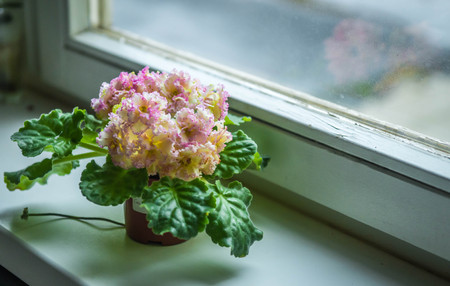Understanding Feng Shui: Principles and Relevance for Modern British Students
Feng Shui, an ancient Chinese practice centred on harmonising individuals with their environment, has long been used to optimise spaces for balance, well-being, and prosperity. For British students navigating the demands of modern academic life, these time-honoured principles offer a fresh perspective on creating study environments that nurture both focus and vitality. Traditionally rooted in Taoist philosophy, Feng Shui considers the flow of energy—known as Qi—and how spatial arrangements can influence mood, productivity, and even success. While its origins lie far from the UK’s bustling university towns and historic student flats, Feng Shui’s adaptable nature means its core concepts can be seamlessly integrated into British living and learning spaces.
Adapting Feng Shui for contemporary student life in the UK involves reinterpreting its principles within the context of typical British accommodation—from compact halls of residence to shared Victorian terrace houses. It encourages students to become intentional about their surroundings, considering factors such as desk placement, natural light, and clutter management. By understanding the historical roots of Feng Shui and exploring its relevance today, students can cultivate study spaces that feel not only more functional but also more inviting and energising. Ultimately, embracing these habits is about empowering students to craft environments that support their ambitions while reflecting their unique personalities within the rich tapestry of British culture.
2. Selecting the Right Study Spot: Location, Light, and Layout
Finding your ideal study space is a crucial first step to achieving both focus and vitality, especially in the context of British living – be it a classic Victorian terrace, a modern student hall, or a shared flat. According to Feng Shui principles, the energy, or “chi”, of your environment directly influences your well-being and productivity. To create a study area that truly supports you, consider three core elements: location, light, and layout.
Choosing the Best Location
Whether you’re setting up at home or in university accommodation, start by identifying a spot where you can enjoy relative privacy and minimal distractions. In British homes, alcoves by bay windows or corners away from busy corridors often work well. Avoid placing your desk directly facing a wall or having your back to the door—these positions can stifle creativity and lead to unease. Instead, position your desk so you have a clear view of the room’s entrance; this classic Feng Shui “command position” enhances feelings of security and control.
The Importance of Natural Light
Natural light is not just uplifting—it’s essential for maintaining alertness during those long study sessions. In the UK, where daylight can be precious (especially in winter), maximise whatever sunlight is available by choosing a spot near a window. If you’re in halls with small windows or north-facing rooms typical of British architecture, supplement natural light with warm-toned lamps to mimic daylight. Consider using sheer curtains instead of heavy drapes to allow light to flow while maintaining privacy.
Ergonomic Furniture & British Design Details
Comfort is key for sustained concentration. Invest in ergonomic furniture: an adjustable chair with lumbar support and a desk at elbow height are must-haves. For those living in period properties or converted flats with quirky layouts—think sloped ceilings or fireplaces—use these architectural features creatively. A sturdy wooden table nestled in a Georgian window bay not only looks stylish but also connects you with the heritage charm of your space.
Checklist: Designing Your Ideal Study Space
| Aspect | Feng Shui Tip | British Context Advice |
|---|---|---|
| Location | Command position facing the door but not directly aligned | Avoid high-traffic areas; use alcoves for privacy |
| Light | Maximise natural light; supplement as needed | Choose south-facing windows; use daylight bulbs in darker rooms |
| Furniture | Ergonomic chair and tidy desk; avoid clutter underneath | Select compact desks for smaller rooms; utilise built-in shelves common in UK homes |
| Layout | Circular flow around desk for positive chi movement | Arrange furniture to work with period features like bay windows or fireplaces |
Pro Tip:
Add a touch of greenery—a small potted fern or English ivy on your desk not only purifies the air but also introduces vibrant energy into your study nook. Remember, your environment shapes your mindset; curate it mindfully for peak performance and well-being.

3. Declutter for Clarity: Organisation Habits that Spark Productivity
A tidy study space is the cornerstone of clear thinking and academic success, especially when approached with a Feng Shui mindset. In British homes, where space can be at a premium, clever organisation becomes not just practical but essential. Start by taking stock of your workspace—be ruthless about what you truly need on hand and what can be stored away. Invest in classic British storage solutions, such as stackable wooden crates, charming wicker baskets, or sturdy under-desk drawers; these not only keep your area neat but also add a touch of homely warmth.
Make Tidying Up a Ritual
Establish a simple daily habit: spend five minutes at the end of each study session to clear your desk of unnecessary papers, used mugs, or scattered stationery. This quick tidy-up ritual does wonders for maintaining an inviting environment and helps prevent overwhelm from building up over time.
DIY Tips with a British Twist
Get creative by upcycling everyday items into functional organisers—a repurposed tea tin for pens, or an old biscuit tin for loose cables and chargers. Pegboards mounted above your desk offer a versatile way to store supplies while keeping surfaces clear, embodying both practicality and playful design.
Banish Distractions and Invite Calm
By consistently decluttering, you create a visual calm that supports mental focus—a key principle in Feng Shui. A well-organised study zone not only minimises distractions but also signals to your mind that this is a space for purposeful work. Whether you’re revising for exams or tackling assignments, an orderly environment rooted in thoughtful British design traditions will help you stay energised and productive throughout the academic year.
4. Inviting Good Energy: Colour, Plants, and Personal Touches
When crafting a study space that truly supports your focus and wellbeing, Feng Shui encourages you to curate your environment with intention. In the UK, where the weather can be unpredictable and daylight sometimes sparse, making conscious choices about colour, greenery, and personal décor is especially valuable for students.
Colour Psychology: Choosing Hues that Boost Concentration
The right colours can transform the mood of your study area. According to Feng Shui principles, certain shades are renowned for their ability to promote clarity and vitality:
| Colour | Effect | How to Use |
|---|---|---|
| Soft Blue | Calms the mind, eases stress | Feature wall or stationery |
| Light Green | Promotes balance and renewal | Desk accessories or chair cushion |
| Pale Yellow | Lifts mood, boosts motivation | Lamp shade or artwork accents |
| Cream/White | Increases brightness and clarity | Main wall colour or shelves |
Thriving Houseplants for the UK Climate
Adding greenery is a staple Feng Shui habit—plants purify air and symbolise growth. For UK students, opt for hardy varieties that withstand low light and central heating:
| Plant Name | Benefits | Care Tips |
|---|---|---|
| Sansevieria (Snake Plant) | Air purifying; low maintenance | Tolerates neglect; water sparingly |
| Spathiphyllum (Peace Lily) | Adds calm; blooms indoors | Keep soil moist; indirect sunlight |
| Pothos (Devil’s Ivy) | Hardy; grows in most conditions | Avoid direct sun; water weekly |
| Aloe Vera | Cleans air; easy-care succulent | Bright spot; let soil dry between watering |
Personal Touches: Making Your Study Space Meaningful
Your study nook should reflect who you are. Personalise it with items that spark joy or inspiration—a framed photo from a family holiday in Cornwall, a cherished mug for tea breaks, or even handmade bunting. These details infuse positive energy into your environment while reminding you of your goals and support network.
Quick Tips for Personalising Your Study Corner:
- Add a pinboard for uplifting quotes or achievements.
- Select a desk lamp with adjustable warmth to suit UK winter evenings.
- Drape a soft throw in your favourite colour over your chair for comfort.
- Display small mementoes from home or travels to stay connected to what matters most.
Nurture Focus and Vitality Through Intentional Design Choices
Your study environment is more than just a desk—it’s a reflection of your aspirations. By blending calming colours, resilient plants suited to the British climate, and meaningful décor, you invite good energy into every revision session.
5. Harmonising Technology and Tranquillity
In today’s digital age, students’ study spaces often hum with the quiet energy of laptops, smartphones and Wi-Fi routers. While technology is essential for modern learning, unchecked it can easily disrupt the calming balance that Feng Shui seeks to cultivate. Here’s how you can mindfully integrate your devices to create a harmonious study environment that supports both productivity and wellbeing.
Mindful Placement of Digital Devices
Position computers and screens so they do not directly face your bed or relaxation corner—this helps separate zones of work and rest, preventing mental clutter from seeping into downtime. Keep wires tidy and hidden where possible; visible tangles can create subconscious chaos and impede concentration.
Limit Electromagnetic Distractions
Wi-Fi routers and extension leads should be placed away from your main study area if feasible. The further these are from your desk, the less electromagnetic interference you’ll experience. Try switching devices off or enabling ‘Do Not Disturb’ mode during deep work sessions—this simple habit reduces stress and keeps your space energetically clear.
Introduce Earth Elements for Balance
Counteract the metallic and electronic presence of gadgets by adding grounding elements nearby: a small potted plant, a stone paperweight or wooden accessories soften sharp technological edges, restoring warmth and vitality to your workspace. This nod to nature is a classic Feng Shui practice that fits beautifully with British sensibilities—think leafy houseplants or a bowl of pebbles collected from the coast.
Create Intentional Tech-Free Zones
If possible, dedicate one part of your room as a device-free haven—a window seat, reading nook or even just a cosy chair. Use this spot for analogue pursuits like journalling or sketching, allowing your mind to recharge in a tranquil setting without digital distractions.
The Art of Digital Decluttering
Just as physical clutter can hinder focus, digital clutter can overwhelm the mind. Regularly organise files on your computer desktop and delete unused apps on your phone. A tidy digital landscape mirrors a calm physical one, helping you stay present, efficient and inspired in your studies.
6. Daily Rituals: Simple Feng Shui Habits for Lasting Focus and Vitality
Bringing positive energy into your study routine doesn’t require a complete overhaul—small, mindful habits can make all the difference. For British students, weaving Feng Shui principles into daily rituals helps nurture both focus and vitality, turning ordinary moments into opportunities for mental refreshment.
Start with a Morning Reset
Begin each day by opening your windows to let in fresh air, no matter the weather. The crisp British morning breeze revitalises your space and mind, dispelling stagnant energy and setting a clear intention for focused study. Take a few moments to tidy your desk; a clutter-free surface invites clarity and calm.
Savour Herbal Teas for Mindful Breaks
In true British fashion, take regular tea breaks—but elevate them with intention. Opt for calming blends such as chamomile or invigorating peppermint to support concentration and relaxation. As you sip, step away from screens and gaze out of the window or at a favourite plant, allowing your thoughts to settle.
Create a Five-Minute Reset Ritual
Every hour, pause for five minutes to stretch or practise deep breathing. Stand up, roll your shoulders back, and notice the shift in your posture and energy. This simple ritual helps reset your attention and recharges your motivation—essential during revision marathons.
Wind Down with Gratitude
At the end of each study session, jot down three things you accomplished or appreciated about your workspace. Whether it’s the warmth of a desk lamp on a grey London afternoon or the comfort of a well-loved jumper draped over your chair, this habit fosters positivity and resilience.
Personalise Your Space with Intention
Add small touches that reflect your identity—a postcard from home, a sprig of lavender picked on a walk, or a cherished photo. These personal items act as anchors for emotional wellbeing while aligning with Feng Shui’s emphasis on meaningful surroundings.
Keep Consistency Key
The real power of these Feng Shui-inspired habits lies in their consistency. By integrating mindful routines—tailored to everyday British student life—you’ll not only sustain motivation but also cultivate lasting mental clarity and vitality throughout your academic journey.


